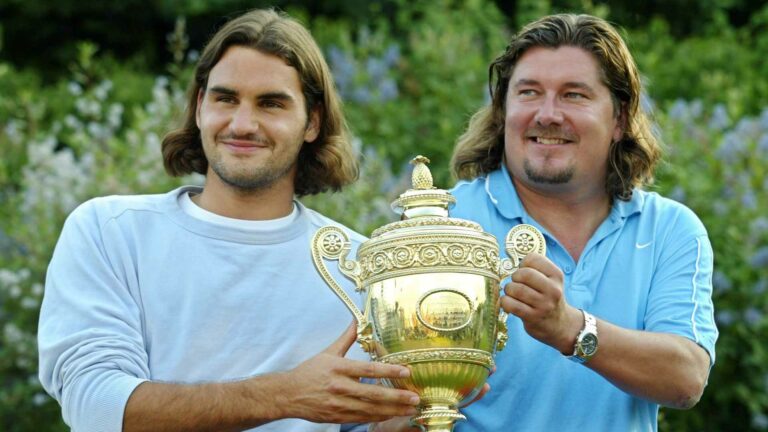Peter Lundgren, a name that resonates deeply within the tennis world, was not just a player but a mentor, a coach, and a guiding force behind some of the sport’s greatest talents. Born on January 29, 1964, in Sweden, Lundgren’s life was intricately tied to tennis, a sport in which he not only competed at a high level but also excelled as a coach, guiding several top players, most notably Roger Federer, to significant milestones in their careers. His death on August 25, 2023, at the age of 59, marked the end of an era for many who knew him personally and professionally. His passing was met with a wave of tributes from around the world, highlighting the indelible mark he left on the sport of tennis.
Lundgren’s journey from a promising young player in Sweden to a revered coach on the international tennis circuit is a story of dedication, passion, and resilience. He achieved a career-high ranking of World No. 25 in 1987 and later transitioned into coaching, where he found even greater success. His influence was pivotal in the careers of several top players, including Marcelo Rios, Marat Safin, and Stan Wawrinka, but it was his partnership with Roger Federer that brought him the most acclaim. This article delves into the life of Peter Lundgren, exploring his early years, his career as both a player and coach, his personal life, and the circumstances surrounding his death. It also examines his legacy and the lasting impact he has had on the world of tennis.
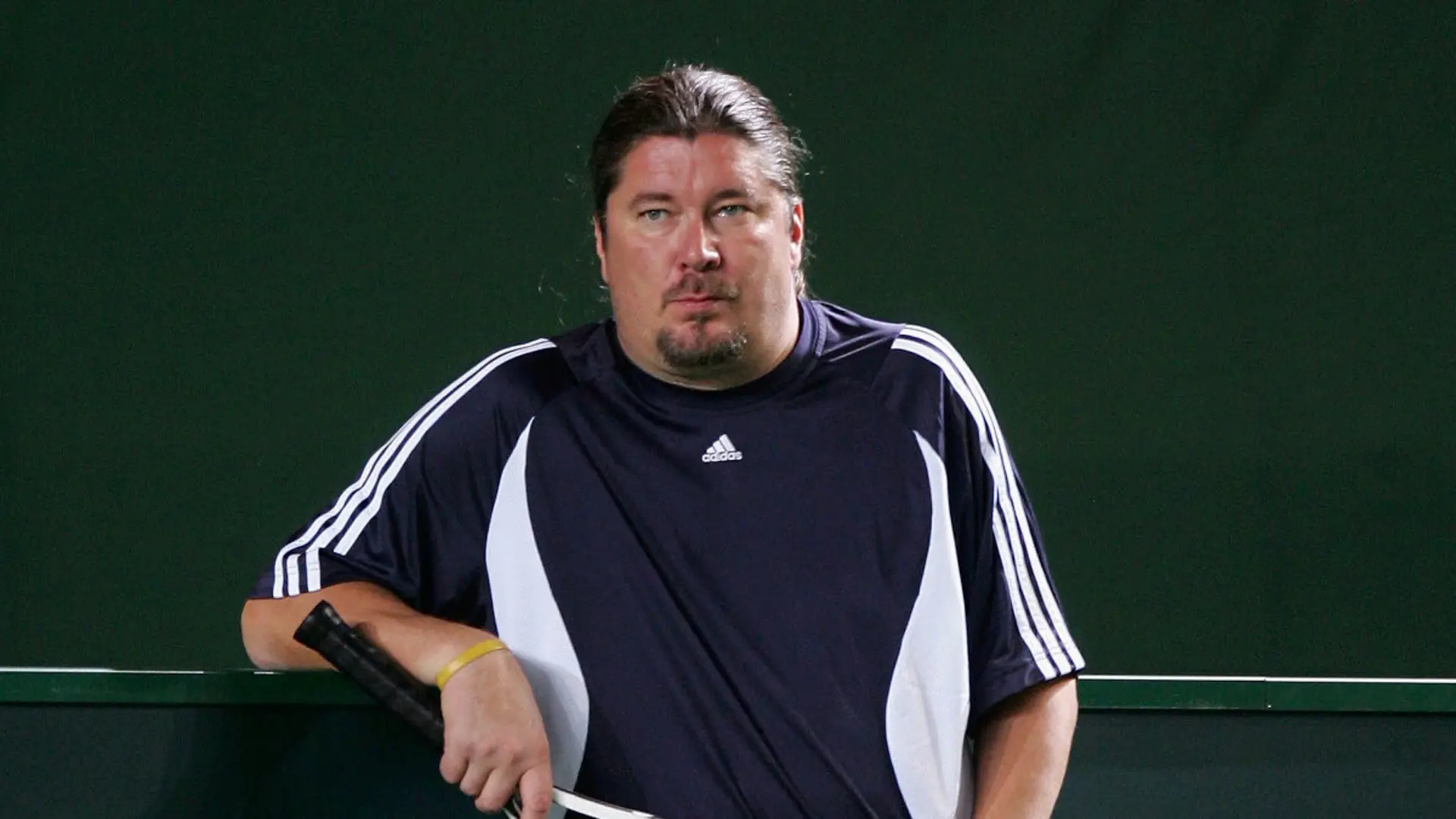
Early Life and Background
Peter Lundgren was born into a modest Swedish family on January 29, 1964, in the town of Flen, located in Södermanland County, Sweden. Growing up in a country with a strong tennis tradition, Lundgren was introduced to the sport at a young age. His early years were marked by a deep passion for tennis, which was nurtured by his supportive family. His father, a keen sports enthusiast, recognized Peter’s potential early on and encouraged him to pursue tennis seriously. This encouragement was pivotal in shaping Lundgren’s future, as it laid the foundation for his professional career.
Lundgren’s childhood in Sweden was influenced by the country’s rich tennis culture, which had produced stars like Björn Borg, who dominated the tennis world in the 1970s. Inspired by Borg and other Swedish tennis greats, Lundgren began competing in local tournaments as a teenager. His talent was evident, and he quickly rose through the ranks of junior tennis in Sweden, earning recognition for his powerful serve and aggressive baseline play.
In addition to his tennis pursuits, Lundgren’s education played a significant role in his development. He attended a local school in Flen, where he balanced his academic responsibilities with his growing commitment to tennis. Despite the challenges of managing both, Lundgren excelled in his studies, demonstrating the discipline and determination that would later define his professional career.
By the time Lundgren reached his late teens, it was clear that he had the potential to make a name for himself in the world of tennis. He began to compete more frequently in international junior tournaments, where he gained valuable experience and exposure. His performances caught the attention of coaches and scouts, leading to his eventual transition to the professional circuit.
Career: From Player to Coach
Early Professional Career
Peter Lundgren turned professional in 1983 at the age of 19. His early years on the ATP tour were marked by steady progress as he honed his skills and adapted to the demands of professional tennis. Standing at 6’3″, Lundgren’s physical presence on the court was formidable, and his game was built around a powerful serve and strong groundstrokes. He quickly established himself as a solid competitor on the ATP circuit, known for his resilience and work ethic.
Lundgren’s breakthrough came in 1987 when he reached a career-high ATP singles ranking of World No. 25. This achievement was the culmination of several years of hard work and dedication. During this period, Lundgren secured three ATP World Series titles, with victories in San Francisco, Rye Brook, and Cologne. These wins were significant milestones in his playing career, showcasing his ability to compete at a high level and succeed against tough competition.
One of Lundgren’s most notable performances as a player came at Wimbledon in 1989, where he advanced to the fourth round. This achievement highlighted his versatility on different surfaces and his ability to perform well on tennis’s biggest stages. However, despite these successes, Lundgren’s playing career was often overshadowed by injuries, which limited his ability to consistently perform at his peak.

Transition to Coaching
As his playing career began to wind down in the early 1990s, Peter Lundgren transitioned into coaching, a move that would define the next phase of his career. His deep understanding of the game, combined with his experience as a player, made him a natural fit for coaching. He possessed a unique ability to connect with players, offering not only technical guidance but also emotional support, which is crucial in the high-pressure world of professional tennis.
Lundgren’s coaching career began in earnest when he started working with younger players on the ATP tour. His first major success as a coach came in 1996 when he guided Chilean player Marcelo Rios to break into the top 10 in the world rankings for the first time. Rios, known for his exceptional talent and fiery temperament, benefitted greatly from Lundgren’s calm and composed approach. Under Lundgren’s guidance, Rios developed a more disciplined and strategic approach to his game, which led to consistent performances on the tour.
After his successful stint with Rios, Lundgren’s reputation as a coach grew, and he began to work with other top players, including Marat Safin. Safin, a volatile but immensely talented player from Russia, won his second Grand Slam title at the 2005 Australian Open under Lundgren’s coaching. Lundgren’s ability to manage Safin’s intense personality while refining his game was a testament to his coaching prowess.
The Federer Era
Peter Lundgren’s most famous coaching partnership was with Roger Federer, whom he coached from 2000 to 2003. This period was pivotal in Federer’s career, as it marked his transition from a highly talented young player to a Grand Slam champion and future world No. 1. Lundgren first met Federer through his work with the Swiss Tennis Federation, where he was tasked with developing young Swiss players. Federer’s talent was undeniable, and Lundgren quickly recognized his potential to become one of the greatest players in the history of the sport.
The partnership between Lundgren and Federer was built on mutual respect and understanding. Lundgren provided the guidance and support that Federer needed to navigate the early stages of his professional career. He worked closely with Federer to develop his all-court game, emphasizing the importance of mental toughness and consistency. Lundgren’s influence was crucial in helping Federer overcome the mental barriers that had previously hindered his performances in big matches.
The breakthrough came in 2003 when Federer won his first Grand Slam title at Wimbledon. This victory was a turning point in Federer’s career, and it marked the beginning of his dominance in men’s tennis. Lundgren’s role in Federer’s success cannot be overstated. He provided the stability and mentorship that Federer needed during a critical phase of his career. Despite parting ways at the end of 2003, their time together laid the foundation for Federer’s subsequent success, which saw him go on to win a record 20 Grand Slam titles.
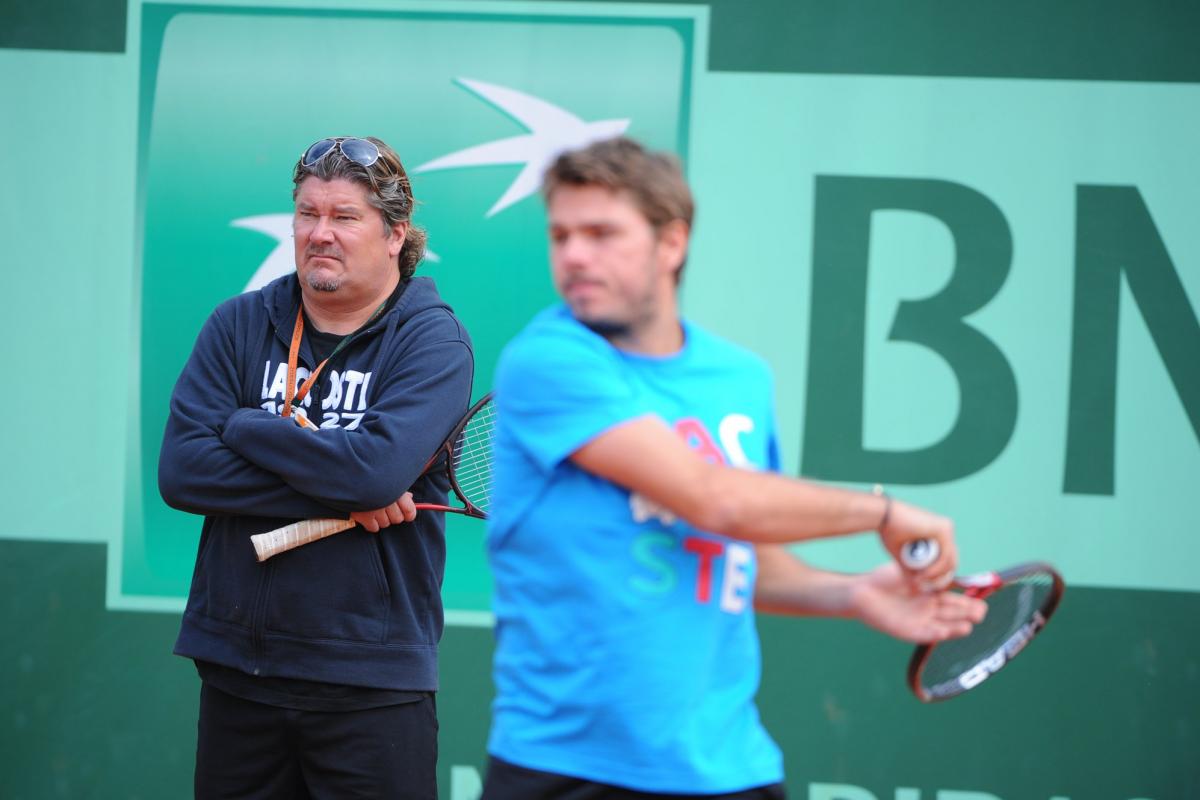
Later Coaching Career
After his time with Federer, Peter Lundgren continued to coach several top players on the ATP tour. He worked with Stan Wawrinka, another Swiss player, helping him to establish himself as a top 10 player. Lundgren’s coaching career was characterized by his ability to adapt his approach to suit the needs of each player he worked with. He was known for his calm demeanour, tactical acumen, and the personal connection he formed with his players.
Lundgren also worked with Grigor Dimitrov, a Bulgarian player often referred to as “Baby Fed” due to his playing style’s similarity to Federer’s. Lundgren’s experience and guidance were instrumental in helping Dimitrov navigate the challenges of the professional circuit and achieve significant milestones in his career.
Throughout his coaching career, Lundgren was highly respected by his peers and players alike. His ability to develop players and help them reach their full potential made him one of the most sought-after coaches on the ATP tour. Despite the challenges and pressures of coaching at the highest level, Lundgren maintained a strong passion for the game and a deep commitment to his players’ success.
Personal Life: Relationships, Challenges, and Controversies
Peter Lundgren’s personal life was as multifaceted as his professional career. He was known for his affable personality and his ability to form strong bonds with those around him. Off the court, Lundgren was a devoted family man, and his relationships with his loved ones were central to his life. He was married and had children, who were a significant source of joy and pride for him. Despite the demands of his coaching career, Lundgren made it a priority to spend time with his family whenever possible.
However, like many public figures, Lundgren’s personal life was not without its challenges and controversies. The pressures of life on the professional tennis circuit, with its relentless travel schedule and high expectations, took a toll on his personal life at times. The nature of his work often required him to be away from home for extended periods, which inevitably created strains in his relationships.
In addition to the challenges posed by his career, Lundgren faced health issues that affected him in the later years of his life. While he remained active in the tennis world, these health problems became more prominent as he aged. Despite these challenges, Lundgren maintained a positive outlook and continued to contribute to the sport he loved.
One of the more publicized aspects of Lundgren’s personal life was his relationship with his players, particularly Roger Federer. While their professional relationship was highly successful, it was not without its tensions. The decision to part ways in 2003 was reportedly mutual, but it was also influenced by the pressures of Federer’s rising fame and the need for a new direction in his career. Despite this, Lundgren and Federer remained on good terms, and Federer has spoken fondly of Lundgren’s impact on his career in the years since their partnership ended.
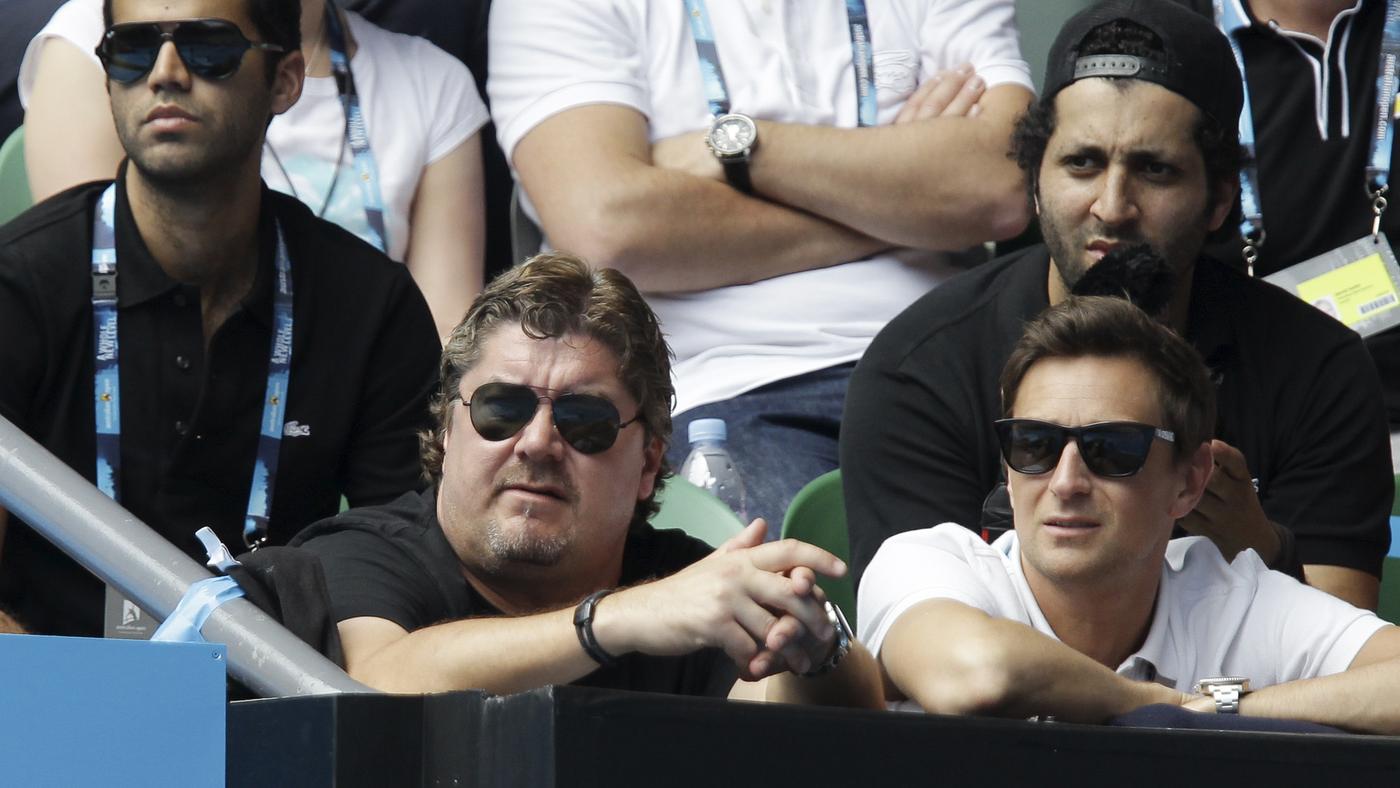
The Circumstances Surrounding His Death
Peter Lundgren’s death on August 25, 2023, at the age of 59, was a shock to the tennis community and to those who knew him personally. The news of his passing was announced by his children, who paid tribute to their father with a heartfelt message, describing him as “one of the best” and an “inspiration” both on and off the court. The announcement was met with an outpouring of grief and tributes from players, coaches, and fans around the world, highlighting the profound impact Lundgren had on the sport.
The exact cause of Lundgren’s death was not immediately disclosed, but it was known that he had been dealing with health issues in the years leading up to his passing. Reports suggest that these health problems were likely related to complications arising from a long-term illness, although the specifics were not made public out of respect for his family’s privacy. The lack of detailed information regarding his cause of death only added to the sense of loss felt by those who admired and respected him.
In the days following his death, many of the players Lundgren had coached over the years expressed their condolences and shared memories of their time with him. Roger Federer, in particular, paid tribute to his former coach, acknowledging the crucial role Lundgren played in his early career and expressing his sadness at the loss of a mentor and friend. Similarly, Marat Safin and Stan Wawrinka, both of whom had benefitted from Lundgren’s coaching, shared their grief and reflected on the positive influence he had on their lives and careers.
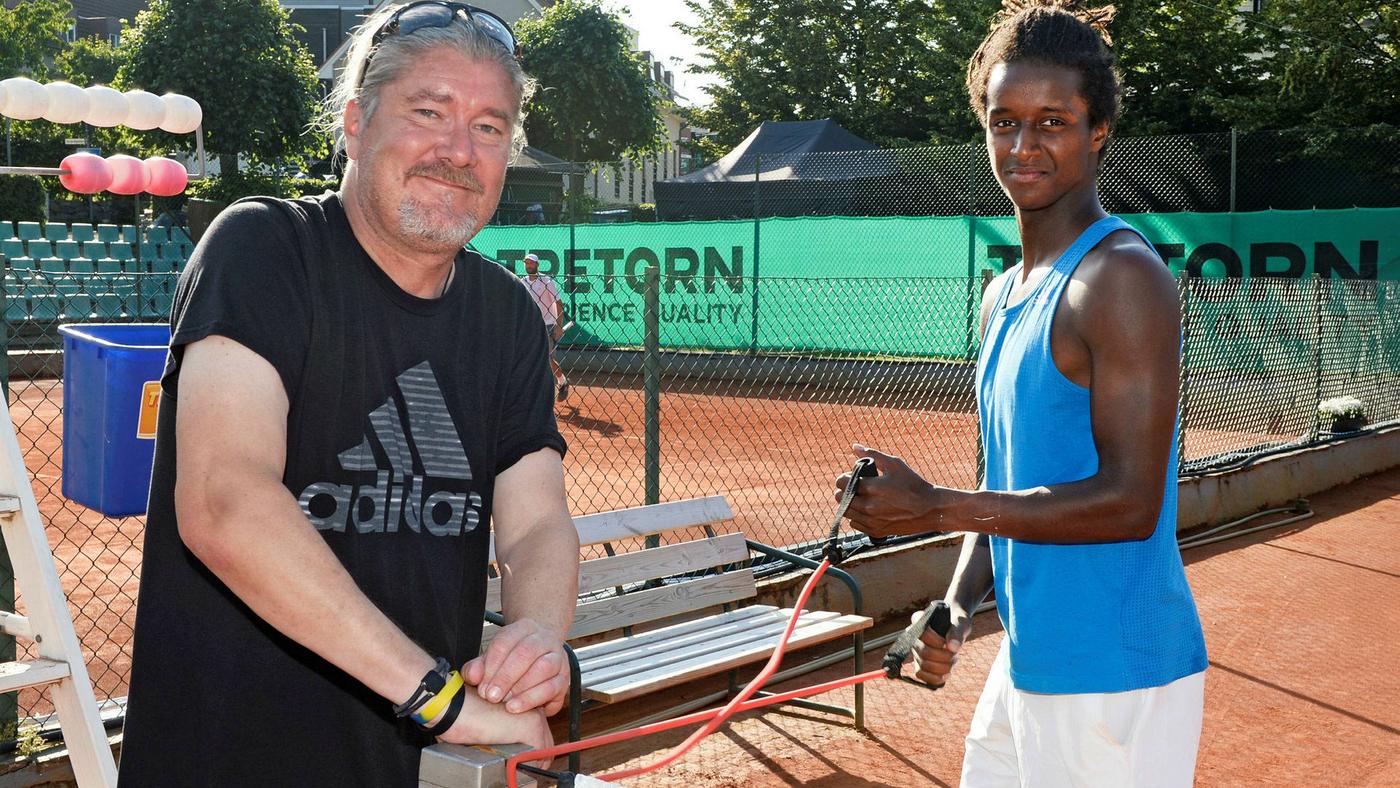
Net Worth at the Time of Death and Financial Legacy
At the time of his death, Peter Lundgren’s net worth was estimated to be in the range of $1 million to $3 million. While this figure is modest compared to the earnings of some of the players he coached, it reflects a successful career in professional tennis, both as a player and coach. Lundgren’s earnings came from his time on the ATP tour, coaching contracts, and various endorsements he received throughout his career.
Lundgren’s financial legacy was managed by his family, who were responsible for handling his estate after his passing. Given his reputation and the respect he commanded in the tennis world, it is likely that his family received support from the tennis community during this difficult time. The financial legacy he left behind was not just in terms of monetary value but also in the impact he had on the lives of those he coached and mentored.
His children, in their tribute, mentioned the “impression” he made and the “memories” that will always live on. These words highlight the intangible legacy that Lundgren left behind—one of inspiration, mentorship, and the positive influence he had on the sport of tennis. His financial legacy, while important, pales in comparison to the lasting impact he had on the players he worked with and the broader tennis community.
Reflection on His Legacy
Peter Lundgren’s legacy is one of passion, dedication, and an unwavering commitment to the sport of tennis. As a player, he achieved significant milestones, including reaching a career-high ranking of World No. 25 and winning three ATP titles. However, it was in his role as a coach that Lundgren truly made his mark on the tennis world. His ability to guide and mentor some of the game’s greatest talents, including Roger Federer, Marat Safin, and Stan Wawrinka, cements his place in tennis history.
Lundgren’s influence extended beyond the court. He was known for his calm demeanour, his ability to connect with players on a personal level, and his strategic acumen. These qualities made him not just a coach but a mentor and a friend to many of the players he worked with. His death at the age of 59 was a significant loss to the tennis community, but his legacy lives on through the achievements of the players he coached and the impact he had on the sport.
The response to Lundgren’s passing highlighted the respect and admiration he commanded within the tennis world. Tributes poured in from players, coaches, and fans, all of whom recognized the important role Lundgren played in shaping the careers of some of the sport’s biggest stars. His contributions to tennis will be remembered for years to come, and his legacy will continue to inspire future generations of players and coaches.
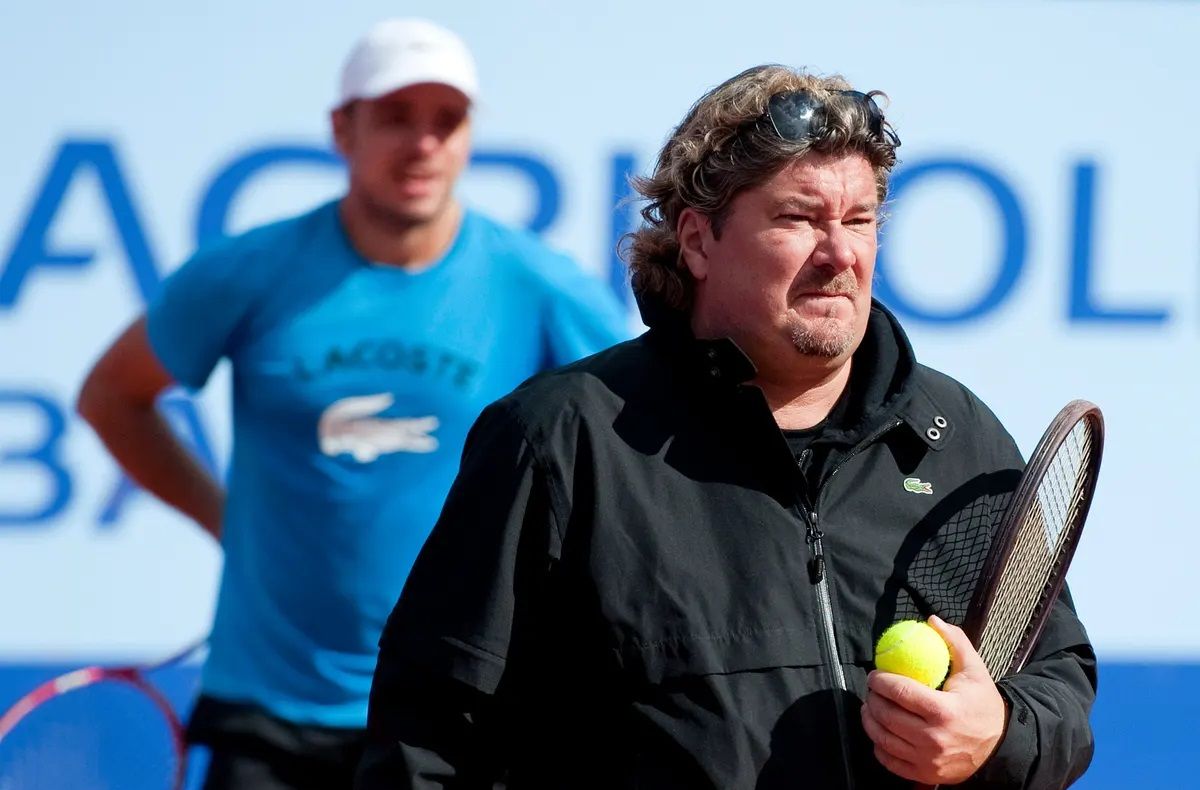
Peter Lundgren’s life was a testament to the power of passion and dedication. From his early days as a promising young player in Sweden to his success on the ATP tour and his remarkable coaching career, Lundgren’s journey was one of perseverance and achievement. His influence on the sport of tennis, particularly through his work with players like Roger Federer, Marat Safin, and Stan Wawrinka, is immeasurable. Although he passed away at the age of 59, his legacy lives on in the memories of those who knew him and in the achievements of the players he coached.
